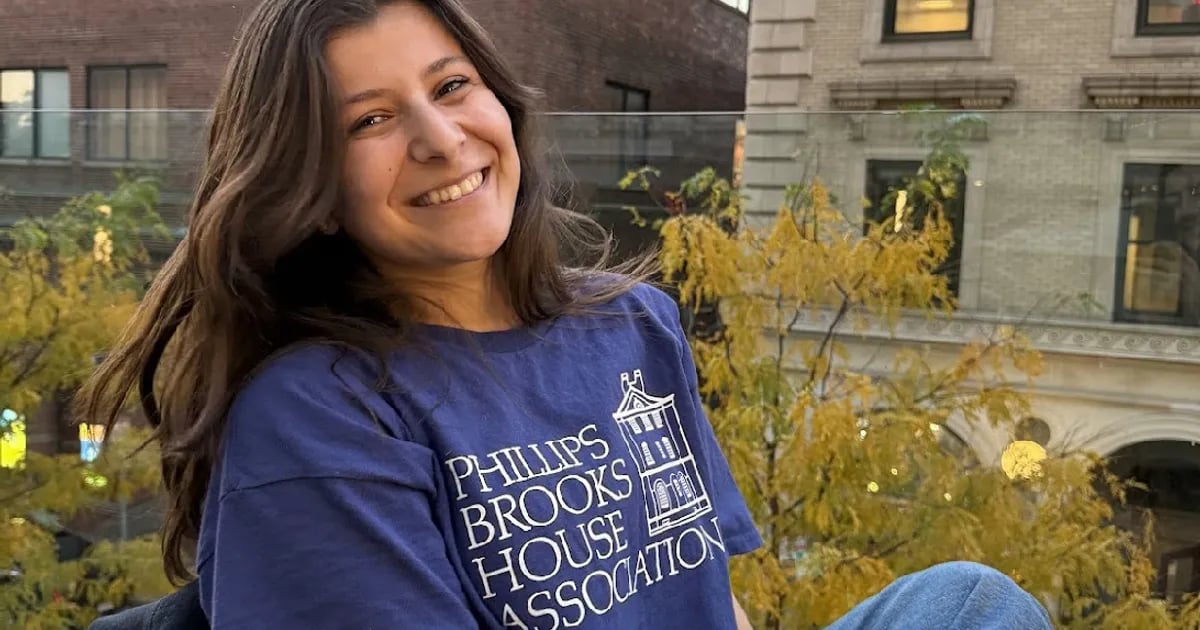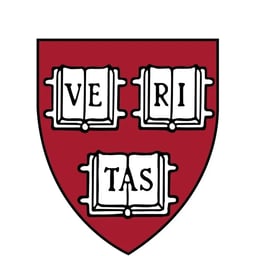Minha Trajetória
Meu nome é Lida Asilyan, e sou de Ijevan, uma pequena cidade na Armênia. Me formei no Liceu de Ijevan, tendo completado 13 anos de escolaridade graças à minha participação no programa Future Leaders Exchange (FLEX), que me proporcionou um ano adicional de experiência no ensino médio. Depois disso, fui aceita na Universidade Americana da Armênia (AUA), onde obtive meu diploma de bacharel em Inglês e Comunicações. A AUA me ofereceu a oportunidade de receber uma educação semelhante ao sistema dos EUA aqui mesmo na Armênia. Durante meu tempo lá, fiz cursos e colaborei com professores que ajudaram a solidificar meu desejo de continuar meus estudos na área de educação. Atualmente, estou cursando meu mestrado em Política e Análise Educacional na Escola de Pós-Graduação em Educação de Harvard.
Por que os EUA
O programa FLEX realmente mudou minha vida ao me proporcionar uma compreensão mais profunda do sistema educacional dos EUA. Embora não fosse especificamente sobre ensino superior, me deu uma amostra do ambiente acadêmico nos Estados Unidos, então eu tinha planos de fazer minha graduação lá. No entanto, acabei me candidatando à Universidade Americana da Armênia, onde concluí meus estudos de graduação. E lá, decidi buscar meu mestrado nos EUA.
Graduação em Política Educacional
Escolhi seguir uma graduação em Política Educacional porque acredito que é uma das maneiras mais eficazes de promover mudanças e melhorar nosso sistema educacional. Também estou focando em Desenvolvimento Educacional Internacional e Educação Comparada, com um interesse particular em educação para refugiados e educação em situações de emergência.

Por que Harvard
Comecei minha busca por universidades focando em programas alinhados com meus interesses em educação para refugiados, educação internacional e desenvolvimento educacional internacional. Pesquisei programas de mestrado nos EUA que enfatizavam essas áreas e acabei reduzindo minhas opções para instituições de ponta como Columbia, UPenn e Harvard. Minha prioridade não eram os rankings, mas sim a qualidade dos programas, do corpo docente e das disciplinas oferecidas. Analisei os perfis dos professores, explorando seus interesses de pesquisa, publicações e qualquer coisa que ressoasse com meus próprios objetivos acadêmicos.
Inicialmente, planejava me candidatar a cinco ou seis universidades, mas restrições de tempo me limitaram a Harvard, Columbia e UPenn. Candidatei-me a cada uma delas com o mesmo nível de comprometimento e fiquei emocionada por ser aceita nas três. No final, escolhi Harvard porque o programa oferecia um currículo mais amplo, permitindo-me definir meu foco ao longo do tempo, e vinha com uma bolsa de estudos mais substancial.
Estatísticas
Eu tinha uma média de notas de 3,96 em 4 em ambos os cursos de graduação, e era muito semelhante durante o ensino médio (o que não impactou de forma alguma minhas candidaturas para o mestrado, e eu não precisei mencioná-lo em nenhum lugar). Exames como GRE/GMAT não eram exigidos para o meu programa, e eu também não precisei fazer o TOEFL, já que o idioma de instrução da minha universidade era o inglês.
Processo de Candidatura
Depois de decidir as universidades para as quais queria me candidatar e organizar os detalhes da minha candidatura, comecei a trabalhar em uma das partes mais importantes: os ensaios. Como a maioria das universidades exigia Declarações de Propósito em vez de declarações pessoais, concentrei-me em adaptar cada ensaio à escola específica. Fiz muita pesquisa para entender o que cada programa estava procurando e como eu poderia apresentar efetivamente meus pontos fortes. Cheguei ao ponto de saber de cor a maioria das informações sobre os professores!
Junto com meus ensaios, enviei meu currículo. Minha extensa experiência de trabalho foi um forte trunfo, especialmente porque muitos estudantes que se candidatam diretamente da graduação podem não ter tanta exposição profissional. As recomendações também são cruciais para candidaturas de pós-graduação, e eu obtive cartas de supervisores e professores que me conheciam bem.
Para completar minha candidatura, incluí um portfólio mostrando minhas habilidades e interesses em gerenciamento de mídias sociais e design gráfico. Acredito que isso realmente ajudou a destacar minhas diversas habilidades.

Atividades Extracurriculares e Experiência Profissional
Ao se candidatar a um mestrado, os escritórios de admissão focam principalmente em suas experiências de trabalho e profissionais. Alguns programas também perguntam sobre atividades extracurriculares, e eu fiz questão de mencionar algumas delas também.
Coordenadora Alumni do FLEX (Future Leaders Exchange Program)
Uma das experiências importantes foi meu trabalho como Coordenadora Alumni do FLEX, através do qual cresci profissionalmente e desenvolvi uma paixão mais profunda pela educação. Eu era responsável por organizar eventos e liderar diferentes iniciativas, tanto localmente quanto com os coordenadores de diferentes países. Para minhas candidaturas, destaquei essas experiências e meu interesse em educação internacional.
Conselheira Júnior do Competitive College Club (CCC) EducationUSA Armênia
Tenho orgulho de ser ex-aluna do programa Competitive College Club (CCC) no EducationUSA Armênia. O CCC é um programa intensivo para estudantes competitivos do ensino médio ou universitários interessados em cursar o ensino superior nos EUA. Recebi muito apoio e orientação sobre como elaborar minhas candidaturas de forma eficaz e foi quando comecei a fazer minha pesquisa. Depois, fui contratada como Conselheira Júnior do EducationUSA, trabalhando com alunos do 9º e 10º ano de duas regiões da Armênia para o PRE-Competitive College Club. Essas funções mostraram minha dedicação em ajudar estudantes de áreas regionais - como de onde eu venho - orientando, aconselhando e trabalhando com diferentes partes interessadas.
Rerooted Archive e University Network of Human Rights
Recentemente, tenho me envolvido com o Rerooted, um arquivo focado nas histórias de armênios-sírios, especialmente suas vidas antes e depois da Guerra da Síria, como descendentes de sobreviventes do Genocídio Armênio. Comecei transcrevendo e traduzindo suas histórias e depois conduzi entrevistas e assumi tarefas adicionais. Minha supervisora, Anoush Baghdasaryan, ex-aluna da Harvard Law School, foi incrivelmente solidária e me envolveu em outros projetos. Com sua ajuda, trabalhei com a University Network of Human Rights, focando em violações de direitos humanos relacionadas à Guerra de Nagorno-Karabakh e deslocamento. Essa oportunidade me permitiu colaborar com um professor da Harvard Law School e estudantes de várias universidades. Ganhei experiência prática com seus métodos de pesquisa e tive uma noção real da cultura acadêmica deles. Isso também me ajudou a me conectar mais profundamente com as universidades e entender como seus alunos e professores abordam questões importantes.
Auxílio Financeiro e Bolsas de Estudo
Eu diria que geralmente é mais difícil conseguir bolsas de estudo para programas de mestrado nos Estados Unidos, especialmente em universidades privadas. Embora elas ofereçam bolsas para candidatos de pós-graduação, a competição é extremamente acirrada. As bolsas de Harvard cobriram apenas uma parte do custo total, então eu me candidatei a bolsas externas e recorri a campanhas de arrecadação de fundos, incluindo contribuições de indivíduos privados. Sou grata por ter recebido apoio de diferentes organizações armênias, o que me ajudou a cobrir a maior parte dos meus custos. Mesmo que as universidades às quais me candidatei tenham sido transparentes sobre as bolsas limitadas que oferecem, navegar por esse processo de financiamento após ser aceita foi outra jornada difícil, mas gratificante.
Como está indo
Ser uma estudante de pós-graduação é uma experiência completamente diferente porque envolve mais tomada de decisões. Como graduanda, eu geralmente era guiada por certos requisitos obrigatórios, o que significava que eu não precisava me preocupar muito em selecionar todos os meus cursos. Há pelo menos alguma estrutura a seguir. No entanto, na pós-graduação, as escolhas são principalmente minhas, com uma ampla gama de cursos e oportunidades disponíveis. Posso até me inscrever em aulas em todas as escolas de Harvard, MIT e Universidade Tufts.
Se você tende a ficar ansiosa como eu, precisará ser uma boa planejadora para decidir o que quer seguir. No início do semestre, tentei delinear o que queria alcançar. Neste semestre, decidi me concentrar apenas nos estudos—sem trabalho, apenas aulas. Desafiei-me matriculando em cursos como estatística, que são bem diferentes dos meus estudos de graduação em comunicação, escrita e jornalismo. Tem sido uma jornada intensa, divertida e empolgante, embora eu não vá romantizá-la; também tem sido bastante exaustiva. Houve momentos desafiadores em que me perguntei: "O que estou fazendo? Isso é demais!". Mesmo agora, às vezes me sinto um pouco perdida porque, embora Harvard seja renomada por sua rede, recursos e oportunidades, utilizá-los efetivamente é crucial.
Conhecer pessoas incríveis de todo o mundo tem sido uma experiência reveladora. Quase todos compartilham a mesma paixão pela educação, e interagir com pessoas com backgrounds muito impressionantes me ajudou a perceber quanto mais tenho a aprender.
No geral, minha experiência tem sido uma mistura de emoções—avassaladora, mas positiva e esperançosa. Estou otimista de que tomarei decisões inteligentes e sairei sem arrependimentos!

Planos após a Graduação
Como meu diploma é orientado para STEM, tenho a oportunidade de permanecer nos EUA por até três anos para treinamento prático opcional após a graduação. Definitivamente, espero passar pelo menos mais um ano aqui, já que um programa de mestrado de um ano parece bem curto. Quero ver que tipos de experiências posso ganhar durante esse tempo ou talvez até estender minha estadia para dois ou três anos. No entanto, olhando para o longo prazo - nos próximos cinco anos - pretendo voltar para a Armênia. Meu objetivo é trabalhar na e para a Armênia, contribuindo para suas políticas e sistemas educacionais, que é a principal razão pela qual estou fazendo um curso de política educacional.
Além disso, estou considerando fazer um doutorado porque me vejo na academia, particularmente no ensino. Embora um doutorado não seja necessário para lecionar na Universidade Americana da Armênia, é algo que aspiro fazer. Quero me aprofundar em questões específicas de pesquisa e acredito que obter um doutorado seria uma experiência gratificante. No entanto, sinto que seria benéfico para mim voltar primeiro para a Armênia, para aprender e me imergir em áreas que talvez eu ainda não entenda completamente, e depois buscar um doutorado mais tarde. Sou jovem e tenho tempo para seguir esse caminho. Acredito que tenho tempo suficiente!
Conselhos para Candidatos Internacionais
Para Estudantes de Pós-Graduação
Não Tenha Pressa: Considere ganhar experiência de trabalho antes de se candidatar à pós-graduação. Explorar diferentes funções e áreas lhe dará uma perspectiva mais ampla sobre o que realmente lhe interessa e como maximizar sua experiência na pós-graduação. Não se apresse—use esse tempo para esclarecer seus objetivos.
Faça uma Pesquisa Extensa: Quando estiver se candidatando, pesquise minuciosamente. Entenda o que cada programa oferece—as disciplinas disponíveis, os professores que as ministram e o foco do programa. É um investimento considerável de tempo e dinheiro, então certifique-se de que sua escolha seja bem informada.
Seja Específico: Os programas de pós-graduação tendem a oferecer escolhas mais específicas do que os de graduação. Considere cuidadosamente o que você quer do seu diploma e candidate-se com intenção, sabendo exatamente o que espera alcançar.
Para Estudantes de Graduação
Seja Multifacetado: Sua candidatura deve refletir seu eu completo. Embora você deva enfatizar seus principais interesses, como ciência da computação e tecnologia, inclua também outras áreas da sua personalidade. Mostre que você é mais do que apenas uma lista de certificados e experiências.
Seja Criativo com as Declarações Pessoais: Se escrever sua declaração pessoal parecer desafiador, tente pedir a um amigo para entrevistá-lo. Deixe que ele faça perguntas abertas sobre sua vida como um jornalista faria. Isso pode ajudá-lo a focar em histórias específicas e extrair metáforas ou símbolos para tornar sua declaração única. Acredito que a atenção aos pequenos detalhes e uma narrativa convincente deixarão uma impressão duradoura.
Para ambos, a chave é ser estratégico, autêntico e intencional sobre o que você apresenta.



